|
2. MONTENEGRO |
| Danilo I Petrovic |
Prince-Bishop,
1697-1737 |
| Sava |
1737-1756
d.1782 |
| Vasili |
Coadjutor,
1756-1766 |
Stephen
the Little |
Coadjutor,
1766-1774 |
| Sava |
Coadjutor,
1774-1782 |
| Peter I |
1782-1830 |
| Peter II |
1830-1851 |
| Danilo II |
1851-1860 |
| Nicholas |
1860-1910 |
King,
1910-1918,
d.1921 |
|
Union with
Yugoslavia, 1918 |
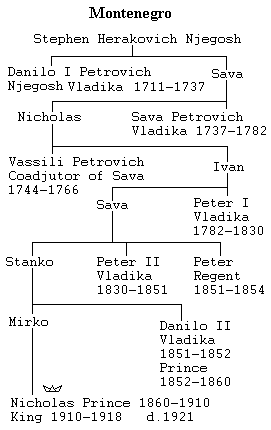
Possessing one of the oldest traditions of local autonomy under the Turks, and a charming Italian version of its name (for the "Black Mountain," Qara Dagh in Turkish and Crna Gora in Serbo-Croatian), in the 20th century Montenegro was nevertheless overshadowed by its ethnic big brother, Serbia. After World War I, King Nicholas was thrown out so that Montenegro could join Yugoslavia. And when Yugoslavia collapsed, Montenegro was the only former Yugoslav republic to stick with Serbia. Religiously and lingustically this is understandable, but the Montenegrans are ambivalent about the present Serbian government, neither entirely sympathetic nor entirely unsympathetic. Since Montenegro represents Serbia's only access to the sea, through the historic port of Kotor
(Cattaro in Italian, obtained from Austria after World War I), the fear is that, should the Montenegrans decide to go their own way, the Serbs would use force, with enough local support to make resistance abortive. The title of the orignal "Prince-Bishops" of Montenegro, vladika, means "lord, sovereign" or "archbishop."
Serbia's only access to the sea, through the historic port of Kotor
(Cattaro in Italian, obtained from Austria after World War I), the fear is that, should the Montenegrans decide to go their own way, the Serbs would use force, with enough local support to make resistance abortive. The title of the orignal "Prince-Bishops" of Montenegro, vladika, means "lord, sovereign" or "archbishop."

1908 was a big year in the Balkans. Bulgaria became independent and Austria annexed most of its protectorate from the Congress of Berlin. In Turkey, the Sultan, "Abdul the Damned," was overthrown by the Young Turks, whose impetus, unfortunately, was more merely nationalistic than liberal. Meanwhile, Greece was able to add Thessaly (1881, with adjustments in 1897). A rebellion on Crete led to autonomy (1898) as a prelude to Greek control (1912).
|
3. GREECE |
Greek War of
Independence, 1821-1829 |
| Alexander Ypsilanti |
leads revolt,
1821-1828 |
Treaty of London, Britain,
France, & Russia support
Greek independence,
Battle of Navarino,
Egyptian fleet sunk, 1827 |
| Count Kapodistrias |
regent,
1827-1830 |
Russian War on Turkey,
1828-1829;
Peace of Adrianople, 1829,
London Conference, 1830,
recognition of
Greek Independence |
| Otto of
Bavaria |
King,
1832-1862 |
| George I of Denmark |
1863-1913 |
| Constantine I |
1913-1917,
1920-1922 |
| Alexander |
1917-1920 |
| George II |
1922-1924,
1935-1941,
1946-1947 |
|
Republic, 1924-1935 |
| Pavlos Konduriotis |
President,
1924-1926,
1926-1929 |
| Theodoros Pangalos |
1926 |
| Alexandros Zaimis |
1929-1935 |
|
German Occupation, 1941-1944 |
| Paul |
1947-1964 |
| Constantine II |
1964-1973,
exile 1967 |
|
Military Dictatorship, 1967-1974 |
| Giorgios Zoitakis |
1967-1972 |
| Giorgios Papadopoulos |
1972-1973,
President,
1973 |
| Phaidon Gizikis |
1973-1974 |
|
Republic, 1974 |
| Michael Stasinopoulos |
1974-1975 |
| Konstantin Tsatsos |
1975-1980 |
| Konstantin Karamanlis |
1980-1985,
1990-1995 |
| Christos Sartzetakis |
1985-1990 |
| Konstantin Stephanopoulos |
1995-present |
The revolt of Greece against the Turks was one of the sensations of the 19th century, drawing partisans,
 like Lord Byron, from far and wide. Against the Ottomans alone, the Greeks could well have been successful, but the Sultan called in
Muh.ammad 'Alî, who had modernized the Eyptian army enough that the rebellion was being suppressed. This was too much, however, for "civilized" opinion. Not only the Russians, the traditional protectors of Orthodox Christians in Turkey, but Britain and France, inspired by all that Classical Oxbridge learning, moved to help the Greeks, sinking Muh.ammad
'Alî's fleet at Navarino in 1827. They say that the ships are still visible at the bottom of the bay, right by the island of
Sphacteria, where the Athenians defeated the Spartans early in the Peloponnesian War, and just south of "Sandy
Pylos," where a great Mycenaean city supplied wise Nestor to the Greek forces at Troy.
like Lord Byron, from far and wide. Against the Ottomans alone, the Greeks could well have been successful, but the Sultan called in
Muh.ammad 'Alî, who had modernized the Eyptian army enough that the rebellion was being suppressed. This was too much, however, for "civilized" opinion. Not only the Russians, the traditional protectors of Orthodox Christians in Turkey, but Britain and France, inspired by all that Classical Oxbridge learning, moved to help the Greeks, sinking Muh.ammad
'Alî's fleet at Navarino in 1827. They say that the ships are still visible at the bottom of the bay, right by the island of
Sphacteria, where the Athenians defeated the Spartans early in the Peloponnesian War, and just south of "Sandy
Pylos," where a great Mycenaean city supplied wise Nestor to the Greek forces at Troy.
The house of Denmark supplied most the kings of modern Greece. The kingship itself contained an interesting ambiguity, since the Greek word basileus only meant "king" in Classical Greek. In mediaeval Greek, basileus was used by the Emperors of Romania to translate Latin imperator, i.e. "emperor." So which was it? Was the ruler of Greece merely the King of the Hellenes, or the Emperor of the Romans (Rhômaioi)? When the Greeks tried to seize a large part of western Asia Minor from the Turks in 1920, it looked like restoring the Empire was the objective.
Turkey remained, and remains, fundamentally stronger than Greece, and the Greek invasion only provoked the expulsion of
Greeks from the Asia Minor.
Politically,
 Greece has swung back and forth in the 20th century. Whether the monarchy was a good thing was often in doubt, as it was briefly abolished in the 20's and almost not reinstituted after World War II. Then the Army took over in 1967, creating a dictatorship that lasted until 1974. King Constantine II tried to organize a counter-coup against the dictatorship, but then fled the country when he failed. Eventually the dictators abolished the monarchy. When democracy was restored, after a stupid attempt to overthrow the government of Cyprus (provoking a Turkish
intervention), the Greeks nevertheless seemed to think that Constantine had not been sufficiently vigorous in opposing the dictatorship, so the monarchy was not restored. Since then, Greece seems to have made a speciality of electing anti-American, socialist governments, long after that made any sense either geo-politically or economically. A good example of recent foolishness was a nationwide strike on May 17, 2001, with 10,000 protesters marching on the Parliament in Athens. Protesting what? Well, the Greek state pension system is nearly bankrupt, and the Government is considering reforms, like cutting benefits and increasing the retirement age (to 65). Even the socialist government, however, might have anticipated the offense to the Greek sense of entitlement that this would cause.
Greece has swung back and forth in the 20th century. Whether the monarchy was a good thing was often in doubt, as it was briefly abolished in the 20's and almost not reinstituted after World War II. Then the Army took over in 1967, creating a dictatorship that lasted until 1974. King Constantine II tried to organize a counter-coup against the dictatorship, but then fled the country when he failed. Eventually the dictators abolished the monarchy. When democracy was restored, after a stupid attempt to overthrow the government of Cyprus (provoking a Turkish
intervention), the Greeks nevertheless seemed to think that Constantine had not been sufficiently vigorous in opposing the dictatorship, so the monarchy was not restored. Since then, Greece seems to have made a speciality of electing anti-American, socialist governments, long after that made any sense either geo-politically or economically. A good example of recent foolishness was a nationwide strike on May 17, 2001, with 10,000 protesters marching on the Parliament in Athens. Protesting what? Well, the Greek state pension system is nearly bankrupt, and the Government is considering reforms, like cutting benefits and increasing the retirement age (to 65). Even the socialist government, however, might have anticipated the offense to the Greek sense of entitlement that this would cause.
This kind of thing was all bad enough, but then 60 Minutes reported (6 January 2002) that the Greek government, and especially the dominant Socialist Party, appeared to be tolerating a radical leftist terrorist organization, "17 November," that had been responsible for bombings and murders for years. Not a single member of this organization had been arrested or even identified by the government, even though unmasked members raided a police station for weapons and could easily have been described. When members of the Greek press were threatened for reporting on the organization, and police closed the investigations even of murder cases against them, one began to wonder if a sort of leftist death squad had come into existence in Greece. This boded ill for the future of Greece, not only economically, but even as a functioning democracy. Now, however, this situation is looking up. Perhaps under pressure to straighten things out if Greece wanted to host the 2004 Olympics, the government now has arrested many members of "17 November," and the suspects have been spilling details about the membership and operations of the organization [Los Angeles Times, Wednesday, August 7, 2002, "Toppled From Their Pedestal"]. The actual popularity of the group now has been damaged by the very willingness of its members to inform and cooperate in order to avoid harder sentences. Happily, the 2004 Olympics came off without incident.
Although the Greek monarchy is now gone, the Greek Royal family remains impressively connected to two of the most important centers of contemporary European royalty.

The heirs of the British monarchy are now all descendants, through Prince Philip, of King George I of Greece; and all the Greek Royal Family itself is descended from both Queen Victoria and the Emperor Frederick III of Germany. Then Constantine II's sister Sophia married Juan Carlos of Spain, who was able to do in Spain what Constantine wasn't able to in Greece -- restore democracy. Now the heir of Spain, Philip (Filipe), is a descendant of Kings George, Constantine I, and Paul of Greece. One might gather from this diagram that the throne of Britain is due to pass the House of Denmark and Greece, or, more precisely, the House of Schleswig- Holstein-
Sonderburg- Glucksburg; but on marrying Elizabeth, Prince Philip renounced his rights to the Greek throne and his connection to the Greek Royal family, taking the name of his mother's family, Battenberg/Mountbatten, so this connection is obscured. Now that royalty is more a matter of international celebrity than of political power, Greece, by blaming Constantine for a bunch of military dictators, is really missing out on its share of space in People magazine. This may seem like an absurdly trivial consideration, but Greece depends heavily on foreign tourism; and foreign tourism depends heavily on international perception and publicity. Space, free space, in People magazine means millions of dollars in business for Greece. Instead, Greeks still have these ridiculous demonstrations for socialism (not to mention the frightening terrorist activity) and nurse their historic grievance against Turkey.
A real basis for the latter concerns Cyprus. In 1974 the Greek generals tried to annex Cyprus to Greece. This provoked a Turkish
intervention and the de facto partition of the Island (and, happily for Greece, the overthrow of the generals). The Turks even set up a separate Turkish Cypriot Republic, which is recognized by no one in the world but Turkey. What this all really meant was that the effort to maintain Cyprus as a bi-national Republic, since independence from Britain in 1960, had failed utterly. The obvious solution would seem to be a real partition of the island with the Greek and Turkish parts annexed, respectively, by Greece and Turkey.
Conspicuous Americans of Greek origin in recent days have been the stunning actress Melina Kanakaredes, of the late NBC drama Providence, and the comedienne, actress, writer, and producer Nia Vardalos, whose 2002 movie, My Big Fat Greek Wedding, was an unexpected and astonishing success, with over $200 million in domestic
boxoffice. The movie good naturedly pokes fun at the father's old world paternalism and exaggerated nationalistic claims (e.g. that the Japanese word kimono is actually of Greek origin), a familiar phenomenon in Greek nationalism.
As noted above, it is now largely forgotten in Greece, and entirely outside of it, that in the Middle Ages the Greeks called themselves "Romans" (Rhômaioi), because, as it happens, they were. For many centuries Hellênes, which the Ancient Greeks had called themselves, and now the modern Greeks again, meant pagan Greeks. The history of Mediaeval Greece is thus found with that of Rome and Byzantium.
Rome and Romania Index

The map for 1912 gives us the situation right before the Balkan Wars. Turkish holdings in Europe still extend all the way to the Adriatic, including Albania which, although largely Moslem, has already been restless for independence.
|
4. SERBIA & YUGOSLAVIA |
George Petrovic,
Kara ("Black") George |
leads revolt,
1804-1813 |
| Milos Obrenovic |
leads revolt,
1815-1817;
Prince,
1817-1839,
1858-1860 |
| Milan I |
1839 |
| Michael |
1839-1842,
1860-1868 |
Alexander Karadjordjevic
(Karageorgevich) |
1842-1858 |
| Milan II Obrenovic |
1868-1882 |
King,
1882-1889 |
| Alexander I |
1889-1903,
murdered |
Peter I
Karadjordjevic |
1903-1921 |
King of Yugoslavia,
1919-1921 |
| Alexander II |
Regent,
1918-1921 |
| 1921-1934 |
| Peter II |
1934-1945 |
| Paul |
Regent,
1934-1941 |
|
German & Italian Occupation, 1941-1943 |
|
German Occupation, 1943-1945 |
|
Communist takeover, 1945 |
| Ivan Ribar |
1945-1953 |
| Josip Broz Tito |
1953-1980 |
| Lazar Kolisevski |
1980 |
| Cvijetin Mijatovic |
1980-1981 |
| Sergej Kraiger |
1981-1982 |
| Petar Stambolic |
1982-1983 |
| Mika Spiljak |
1983-1984 |
| Veselin Ðuranovic |
1984-1985 |
| Radovan Vlaikovic |
1985-1986 |
| Sinan Hasani |
1986-1987 |
| Lazar Mojsov |
1987-1988 |
| Raif Dizdarevic |
1988-1989 |
| Janez Drnovsek |
1989-1990 |
| Borisav Jovic |
1990-1991 |
| Stjepan Mesic |
1991 |
| Branko Kostic |
1991 |
| Dobrica Cosic |
1992-1993 |
| Zoran Lilic |
1993-1997 |
| Srdjan Bozovic |
1997 |
| Slobodan Milosevic |
1997-2000 |
| Vojislav Kostunica |
2000-present |

In the shadow of the Napoleonic Wars and a Russian war with Turkey, Serbia began the Balkan independence movement against Turkey with a long revolt that led to an Ottoman grant of autonomy. The rivalry of the two leaders of the revolt, Milosh Obrenovic and "Black" George
Petrovic, however, led to a century of sometimes bloodly conflict between their two families, culminating in a coup in 1903 when King Alexander I was murdered. The Congress of Vienna in 1878 granted Serbia full independence, and the status of a Kingdom followed shortly.
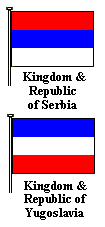 The Serbian dream was not just to unite all Serbian speakers remaining in Bosnia, Montenegro, Hungary, and Turkey, but all of the "Southern Slavs," including the Croatians, Slovenians, and perhaps even Bulgarians. In the aftermath of World War I, which began with the Serbian inspired assassination of the Archduke Francis Ferdinand of Austria in Sarajevo, this dream was realized in the establishment of Yugoslavia, which contained all the Southern Slavs except for Bulgaria, which had its own fiercely separate traditions and ambitions. Macedonia, however, had been wrested from Bulgaria in the Second Balkan War (1913). These benefits were substantially due to the Russians, to whom the Serbs looked as the protectors and patrons of the Orthodox Slavs. World War I formally began when Russia declared war on Austria to protect the Serbs. The flags of both Serbia and Yugoslavia are like the tricolor flag of Russia, with just a different arrangement of the stripes.
The Serbian dream was not just to unite all Serbian speakers remaining in Bosnia, Montenegro, Hungary, and Turkey, but all of the "Southern Slavs," including the Croatians, Slovenians, and perhaps even Bulgarians. In the aftermath of World War I, which began with the Serbian inspired assassination of the Archduke Francis Ferdinand of Austria in Sarajevo, this dream was realized in the establishment of Yugoslavia, which contained all the Southern Slavs except for Bulgaria, which had its own fiercely separate traditions and ambitions. Macedonia, however, had been wrested from Bulgaria in the Second Balkan War (1913). These benefits were substantially due to the Russians, to whom the Serbs looked as the protectors and patrons of the Orthodox Slavs. World War I formally began when Russia declared war on Austria to protect the Serbs. The flags of both Serbia and Yugoslavia are like the tricolor flag of Russia, with just a different arrangement of the stripes.
 The ethnic tensions between Orthodox Serbs and Catholic Slovenes and Croatians (and others), however, manifested themselves both in World War II, when the Germans found willing allies in the Croatians, and with the Fall of Communism, when the growth of democracy unmasked the separatist hostilities again. Yugoslavia broke up, with bitter fighting, atrocities, and "ethnic cleansing" as the various communities and new states sought to secure territory.
The ethnic tensions between Orthodox Serbs and Catholic Slovenes and Croatians (and others), however, manifested themselves both in World War II, when the Germans found willing allies in the Croatians, and with the Fall of Communism, when the growth of democracy unmasked the separatist hostilities again. Yugoslavia broke up, with bitter fighting, atrocities, and "ethnic cleansing" as the various communities and new states sought to secure territory.










 like Lord Byron, from far and wide. Against the Ottomans alone, the Greeks could well have been successful, but the Sultan called in
like Lord Byron, from far and wide. Against the Ottomans alone, the Greeks could well have been successful, but the Sultan called in



 The Serbian dream was not just to unite all Serbian speakers remaining in Bosnia, Montenegro, Hungary, and Turkey, but all of the "Southern Slavs," including the Croatians, Slovenians, and perhaps even Bulgarians. In the aftermath of World War I, which began with the Serbian inspired assassination of the Archduke Francis Ferdinand of Austria in Sarajevo, this dream was realized in the establishment of Yugoslavia, which contained all the Southern Slavs except for Bulgaria, which had its own fiercely separate traditions and ambitions. Macedonia, however, had been wrested from Bulgaria in the Second Balkan War (1913). These benefits were substantially due to the Russians, to whom the Serbs looked as the protectors and patrons of the Orthodox Slavs. World War I formally began when Russia declared war on Austria to protect the Serbs. The flags of both Serbia and Yugoslavia are like the tricolor flag of Russia, with just a different arrangement of the stripes.
The Serbian dream was not just to unite all Serbian speakers remaining in Bosnia, Montenegro, Hungary, and Turkey, but all of the "Southern Slavs," including the Croatians, Slovenians, and perhaps even Bulgarians. In the aftermath of World War I, which began with the Serbian inspired assassination of the Archduke Francis Ferdinand of Austria in Sarajevo, this dream was realized in the establishment of Yugoslavia, which contained all the Southern Slavs except for Bulgaria, which had its own fiercely separate traditions and ambitions. Macedonia, however, had been wrested from Bulgaria in the Second Balkan War (1913). These benefits were substantially due to the Russians, to whom the Serbs looked as the protectors and patrons of the Orthodox Slavs. World War I formally began when Russia declared war on Austria to protect the Serbs. The flags of both Serbia and Yugoslavia are like the tricolor flag of Russia, with just a different arrangement of the stripes.

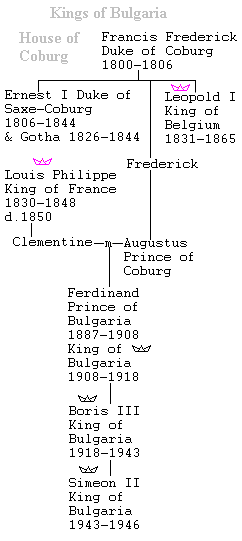
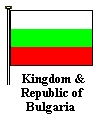 when they occupied Adrianople and drew near Constantinople. This advantage, however, was lost in the Second Balkan War (1913), when Bulgaria took on all the other belligerents from the First War, largely in a dispute with Serbia over Macedonia (where a dialect or near relative of Bulgarian was spoken), and was overwhelmingly defeated.
Adrianople went back to Turkey, Macedonia went to Serbia, and other territories went to Greece and Romania.
when they occupied Adrianople and drew near Constantinople. This advantage, however, was lost in the Second Balkan War (1913), when Bulgaria took on all the other belligerents from the First War, largely in a dispute with Serbia over Macedonia (where a dialect or near relative of Bulgarian was spoken), and was overwhelmingly defeated.
Adrianople went back to Turkey, Macedonia went to Serbia, and other territories went to Greece and Romania.

 the poorest and least educated people in Europe, the Albanians had unexpected independence thrust upon them after the First Balkan War (1912-1913) and then found themselves locked into paranoid and pauperized
the poorest and least educated people in Europe, the Albanians had unexpected independence thrust upon them after the First Balkan War (1912-1913) and then found themselves locked into paranoid and pauperized


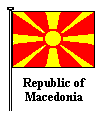 featured the "Star of
Vergina," from the tomb of Philip II of Macedon. This implied Macedonian designs on northern Greece, also containing part of historic Macedonia; and indeed Macedonians did express some claims there. I even saw stickers on lampposts in New York City proclaiming "Macedonia is Greek!" What this was supposed to mean was not going to be obvious to anyone. It made it sound like Greece itself had designs on the new Republic of Macedonia. Did anyone even in New York City know, or care, what this was all about? Probably not.
featured the "Star of
Vergina," from the tomb of Philip II of Macedon. This implied Macedonian designs on northern Greece, also containing part of historic Macedonia; and indeed Macedonians did express some claims there. I even saw stickers on lampposts in New York City proclaiming "Macedonia is Greek!" What this was supposed to mean was not going to be obvious to anyone. It made it sound like Greece itself had designs on the new Republic of Macedonia. Did anyone even in New York City know, or care, what this was all about? Probably not.



